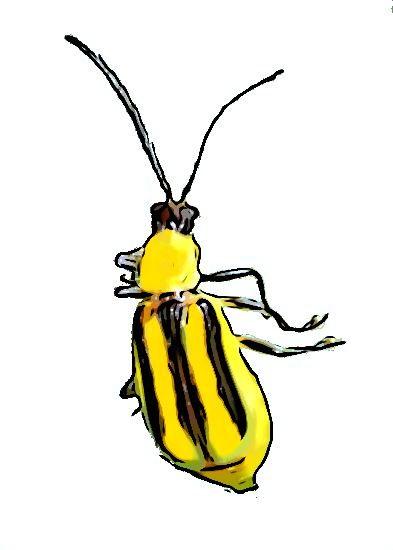| Western Corn Rootworm Resistance Development |  |
|
Western corn rootworm is historically known for developing resistance. They develop resistance not only to chemical means of control, but also cultural practices as well. Many of the first chemical insecticides became ineffective against corn rootworms with increasing use. Some populations have also changed to where females will lay eggs in fields other than corn such as soybean fields. Other populations of corn rootworms go through extended diapause in the egg stage, or lay dormant in the soil for a year, hatching as larvae when corn is planted two years later. This greatly reduces the effectiveness of crop rotation as a means for controlling corn rootworm.
Most resistance management models also work on the premise that resistance is a recessive trait. Much of the research about Western corn rootworm resistance to Cry proteins (proteins that express toxins used in Bt crops) indicates that resistance may not be simply a recessive trait. This makes predicting development of resistance populations difficult. Thus, making the need for best practices of effective resistance management plan even more important.
|